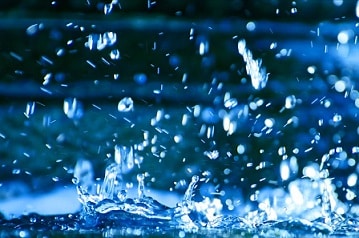 Water resources are sources of water that are used in agriculture, recreation, industry, households and environmental activities. It is a challenging natural resource to manage due to various social, economic and political implications. The largest use of water globally is for irrigation. It makes up for 70% of our usage, with the remainder used for industry and direct consumption by the human population.
Water resources are sources of water that are used in agriculture, recreation, industry, households and environmental activities. It is a challenging natural resource to manage due to various social, economic and political implications. The largest use of water globally is for irrigation. It makes up for 70% of our usage, with the remainder used for industry and direct consumption by the human population.
Managing Water Resources
Human activity has greatly damaged or depleted our water resources. As a result, people have tried to augment resources by increasing precipitation through methods such as cloud seeding. They have also tried decreasing evapotranspiration by changing vegetation management and through gene manipulation. However, the benefits are minimal and have negative environmental, social, economic and legal implications.
Water Conflict
The sources of water are managed through structural methods like dams and canals; while non-structural methods include pricing, standards and permits. Water conflict occurs between countries, states or groups over access to water resources. This conflict arises due to disputes over territory, a battle for resources or strategic advantage. Although conflicts arise over saltwater and freshwater, most clashes occur over the latter. Some of the worst crimes against humanity have included conflict over water. Examples include the Rwandan Genocide and the war in Sudanese Darfur. These are just two examples in a vast body of disputes and conflicts arising over the use and supply of water.
Water is a Precious Resource
Water is essential to human life, but sadly resources are limited and the quality and availability of drinking water is decreasing. Conflict arises because demand often outstrips supply and more than 700 million people are currently without access to improved sources of drinking water.
The World for Water
The mediation of water conflict usually falls to international bodies such as the United Nations or the World Trade Organisation. Scientists, meanwhile, are attempting to quantify water pollution. We have a great history of managing water and using it optimally. In the 18th century, private water suppliers in London were established. This century, and the next, saw the foundation of water companies such as the Chelsea Waterworks Company, the West Middlesex Waterworks Company and the Grand Junction Waterworks Company. We need to continue with innovative thinking that will protect our water resources and supply, in order to ensure adequate provision for the whole word – which will, in turn, aid in reducing conflict. In this new age of technology we have no excuse not to find new methods and means of saving water, and using it efficiently. We can even make a difference in our private capacity. By saving water and keeping it clean, we can help in protecting this vital, natural resource.
A Living-Water water cooler helps prevent wastage as opposed to running a tap and waiting for it to get cold. Get water cooler rental and water cooler buy in London.





